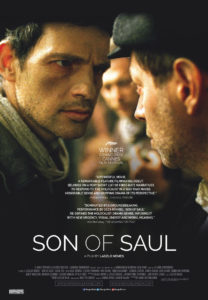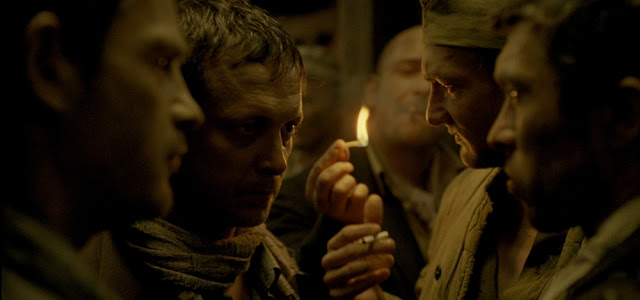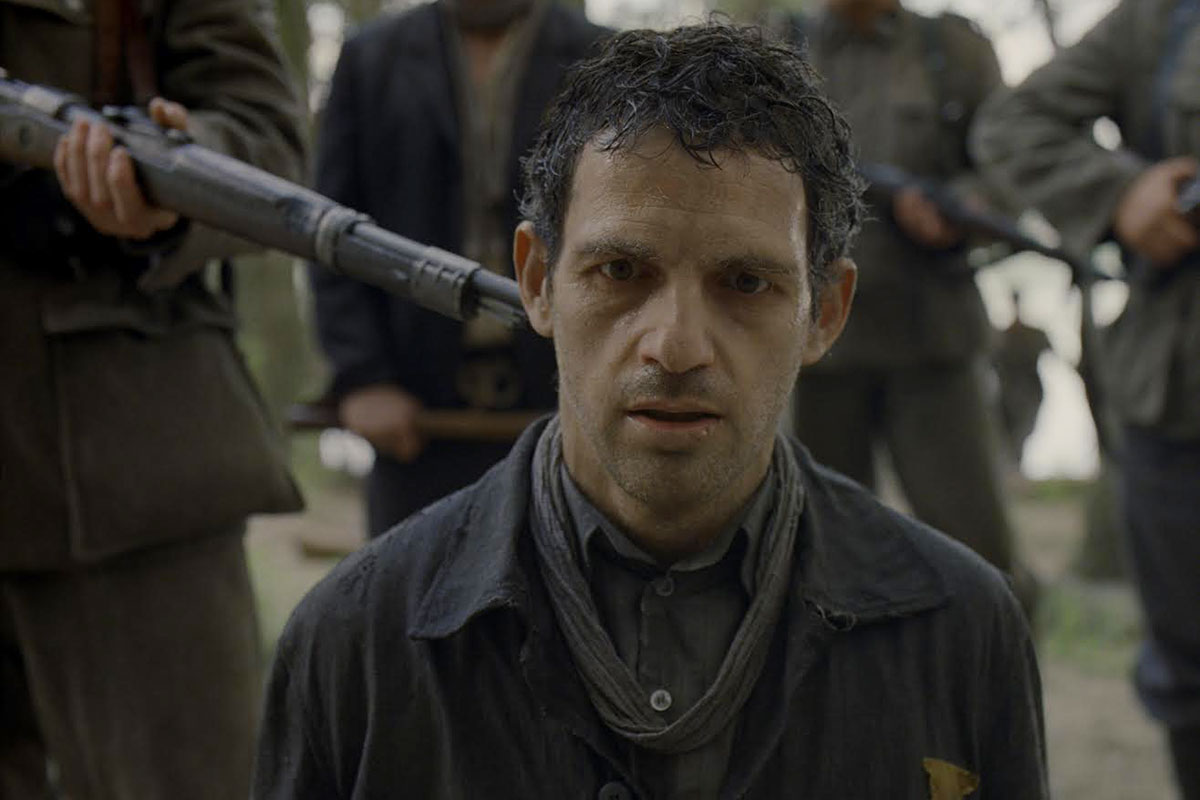A First-Person Encounter In The Midst Of The Holocaust Humanizes The Horrific Events Of WWII
DIRECTOR: LÁSZLÓ NEMES/HUNGARIAN/2016
 László Nemes is a Hungarian director who has worked on a few short films, but has never directed a feature length film before this haunting debut, Son of Saul, or Saul fia. As a college student in France, Nemes studies history, political science, and international relations, despite his real love being film. In this full-feature length debut, and Oscar nominated Best Foreign Language Film, Nemes combines all of his passions and areas of study to create a genuinely moving, and humanizing tale of one of the most difficult subject matters to put onto film: The Holocaust.
László Nemes is a Hungarian director who has worked on a few short films, but has never directed a feature length film before this haunting debut, Son of Saul, or Saul fia. As a college student in France, Nemes studies history, political science, and international relations, despite his real love being film. In this full-feature length debut, and Oscar nominated Best Foreign Language Film, Nemes combines all of his passions and areas of study to create a genuinely moving, and humanizing tale of one of the most difficult subject matters to put onto film: The Holocaust.
Previous films have tackled the subject matter from different angles, garnering high praise and acclaim as well. Steven Spielberg’s 1993 film, Schindler’s List, is probably the most high profile, earning a Best Picture award, as it tells the story of Oskar Schindler, a man profiting from cheap Jewish labor in Poland who eventually begins to see the people who work for him as the priceless people they are and begins using his wealth and position to save them from the death camps that await. Spielberg used this project to not only tell the story of this “righteous gentile”, but as a passion project of his own Jewish identity to get the stories of the survivors of this barbaric event on film before we lose them all to old-age. These stories of holocaust survivors exist through his USC Shoah Foundation.
Another film to have won the best Foreign Language Film Oscar in 1997 was actor/director/writer Roberto Benigni’s Life is Beautiful, or La Vita è Bella. In this film, Benigni plays a charming Italian Jewish man who after marrying his princess and having a son, find themselves being shipped off to a concentration camp. Despite its dark story, the tone of the film is much like its title, an ode to the hope and humor of one man’s struggle to keep his child in the dark of the evils they are facing by making their concentration camp experience a game where his son believes they are simply there to win a contest, with the grand prize of a tank, before heading home.

In both of these cases, the drama focuses on one man with a larger over-arching story where the holocaust is the backdrop and human element is the focus. There are moments of these film where you are faced with the horrors of the death camps and the like, but they have many moments that are presented in other settings, giving the audience a reprieve from the events of this time. In Son of Saul, there is no such reprieve. The film starts, and ends, in the midst of the horror.
Géza Röhrig plays Saul. Saul belongs to a special unit that is responsible for entering the showers after Jews have been gassed to death and removing the bodies, sorting their belongings, and cleaning up the grisly aftermath that these victims leave behind as they strain for life. The people of this special unit are also Jews and know that their position only affords them a few months of protected treatment before they also will be disposed of in a similar manner. Nemes directs the camera to keep Saul in its center frame almost the entire movie.
The focus of this film is not the horrors but what such a man is going through as he tries to focus only at the task at hand, and not the bloodshed happening all around him.
The camera serves this outlook well, as much of the violence is in the periphery of the shot and is slightly blurred to the audience, much like it would be in Saul’s mind. We can only see clearly what is center frame, and this gives the film a unique first person feel much like we are Saul, himself.

The story shows that one of the victims that Saul comes across is a boy who Saul believes is his own son, hence the title. Unable to show emotion to the guards, Saul games the system as a member of this special unit to put on a camp-wide search for a Rabbi who can bestow the proper blessing and burial rites according to the Jewish faith. This difficulty in finding a Rabbi in the camp is compounded by the fact that anyone know to be a Rabbi is immediately dealt with by the German captors.
The Hungarian film, which is subtitled in English, provides a very human-centered story despite being a first person experience of the atrocities of the holocaust.
Röhrig gives Saul a wide-range of emotions throughout his journey despite being confined by his oppressors to remain emotionless. Nemes is able to tell this tale, and bring over-arching political and religious themes down into the story, rather than the previous examples showing the broad story and humanizing them with a personal tale.
Son of Saul opens in select markets this week for those wishing to see a truly remarkable tale that may possibly end up winning the Oscar for Best Foreign Language film. And like Schindler’s List and Life is Beautiful before it, Son of Saul is another important reminder on why we can never forget what happened so many years ago.



